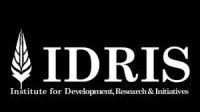AI Integration in Nigeria’s Financial Sector: Challenges and Opportunities for Professional Development
DOI:
https://doi.org/10.58764/j.jrdti.2025.3.103Keywords:
artificial intelligence, financial technology, financial sector, Nigeria, professional developmentAbstract
Artificial Intelligence (AI) is transforming banking, accounting, auditing, risk management, and customer service operations. In Nigeria, the integration of AI into the financial sector presents both unprecedented opportunities and significant challenges. This study examines the implications of AI adoption for professional development among Nigerian finance practitioners. Based on the frameworks of technological diffusion and human capital development, the research investigates how AI-driven tools like machine learning, natural language processing, robotic process automation, and predictive analytics are influencing financial practices and the skills required of professionals. The study uses a mixed-methods approach, combining survey data from finance professionals in selected Nigerian banks and fintech firms with qualitative interviews with regulators, educators, and technology experts. In addition to highlighting important opportunities like increased productivity, fraud detection, financial inclusion, and better decision-making, the findings are anticipated to point out significant obstacles like job displacement, ethical dilemmas, regulatory gaps, and a lack of professional AI literacy. In order to create a workforce prepared for AI, the study emphasizes the necessity of ongoing professional development, curriculum change in finance and accounting education, and cooperative efforts between the government, business community, and professional associations. The study conclude that effective AI integration in Nigeria's financial sector depends not only on the availability of technology but also on giving finance professionals the knowledge, moral compass, and flexible abilities they need to prosper in the age of digital transformation.
References
» click to expand references listAdediran, Emmanuel and Sakpere, Wilson and Ogunyinka, Taiwo, Artificial Intelligence in Nigeria: Challenges and Opportunities (February 26, 2024). Available at SSRN: https://ssrn.com/abstract=5269530 or http://dx.doi.org/10.2139/ssrn.5269530
Afifi, A. A., Arifin, N., & Kiswanto, G. (2019). Industrial maturity development index: An approach from technology-driven resources. In International Colloquium on Research Innovations & Social Entrepreneurship (Ic-RISE) (pp. 1-10).
Afifi, A. A., Arifin, N. A., Eliza, M., Azami, E., & Salm, G. (2024). Online Learning and Open Education: Transforming Beyond Digitalization. Journal of Regional Development and Technology Initiatives, 2(2), 131-143.
Aliyu Ibrahim, Adamu Abubakar Muhammad, Abubakar Aliyu Yakub, & Usman Jibril Mikail. (2025). THE IMPACT OF ARTIFICIAL INTELLIGENCE ON FINANCIAL REGULATIONS IN NIGERIA: CHALLENGES AND PROSPECTS. Bisnis, Jasa Dan Keuangan, 1(2), 93-105. https://doi.org/10.61798/bjk.v1i2.300
AMPLYFI (2021). How ai is changing credit risk management. https://amplyfi.com/2021/07/30/ai-in-credit-risk-management/
Anjum, K. (2020, April 13). Why banks need artificial intelligence. https://www.wipro.com/business-process/why-banksneed-artificial-intelligence/
Apoorva, S. (2021). Financial innovation. https://cleartax.in/g/terms/financial-innovation Bachinskiy, A. (2019). The growing impact of ai in financial services: Six examples. https://towardsdatascience.com/the-growing-impact-of-ai-in-financial-services-sixexamples-da386c0301b2
Babylon Health. (2020). Babylon: The Healthcare AI Company. Retrieved from https://www.babylonhealth.com/
Bauer, H., Bertam, P., Baur, C., Burkacky, O., Camino, S., Patel, M., & Knochenhauer, C. (2019). How AI will transform the future of work. McKinsey Global Institute. Retrieved from https://www.mckinsey.com/industries/manufacturing/our-insights/how-ai-will-transformthe-future-of-work
Chen, J. (2021). Financial innovation. https://www.investopedia.com/terms/f/financialinnovation.asp.
Chui, M., Manyika, J., & Miremadi, M. (2018). The impact of AI on the world economy. McKinsey Global Institute. Retrieved from https://www.mckinsey.com/businessfunctions/mckinsey-digital/our-insights/the-impact-of-ai-on-the-world-economy
Chui, M., Manyika, J., & Miremadi, M. (2022). The AI frontier: How developing countries can leapfrog developed nations. McKinsey Global Institute. Retrieved from www.mckinsey.com/mgi
Dumasia, J. (2021). 5 applications of artificial intelligence in banking. https://ibsintelligence.com/ibsi-news/5-applications-of-artificial-intelligence-in-banking/
Durodolu, O. O., Ibenne, S. K., & Ocholla, D. N. (2021). The ethical implications of AI and the future of work in developing countries. International Journal of Information Management, 58, 102310. https://doi.org/10.1016/j.ijinfomgt.2020.102310
Eliza, M., Afifi, A. A., Arifin, N. A., & Azami, E. (2024). Digital Learning Co-Creation: A Conceptual Study between University and Learning Hub in Underdeveloped Urban Areas. Journal of Regional Development and Technology Initiatives, 2(2), 119-130.
Eryk, L. (2020). Artificial intelligence in finance: Opportunities and challenges. https://towardsdatascience.com/artificial-intelligence-in-finance-opportunities-andchallenges-cee94f2f3858.
Kumar, S. (2021). Use of artificial intelligence in banking world today. https://www.finextra.com/blogposting/20688/use-of-artificial-intelligence-in-bankingworld-today
Marr, B. (2021). The biggest artificial intelligence (AI) trends in 2021. Forbes. Retrieved from https://www.forbes.com/sites/bernardmarr/2021/01/18/the-biggest-artificial-intelligenceai-trends-in-2021
Miller, H., Johnston, E., & Jensen, M. (2020). The impact of artificial intelligence on public administration. Public Administration Review, 80(3), 400-409. https://doi.org/10.1111/puar.13230
Lerner, J. & Tufano, P. (2011). The Consequences of financial innovation: A Counterfactual Research Agenda. Annual Review of Financial Economics, 3:41-85. www.10.1146/annurev.financial.050808.114326
OGALA, DAVID POLYCARP. (2025). ARTIFICIAL INTELLIGENCE (AI) AND BUSINESS ENHANCEMENT IN NIGERIA: A CASE STUDY OF THE NIGERIAN BANKING SECTOR. Journal of African Sustainable Development, 8(2). https://doi.org/10.70382/bejasd.v8i2.025
World Bank. (2021). Nigeria development update: Resilience through reforms. Retrieved from https://www.worldbank.org/en/country/nigeria/publication/nigeria-development-update
Downloads
-
PDF
views: 13
Published
How to Cite
Issue
Section
License

This work is licensed under a Creative Commons Attribution-ShareAlike 4.0 International License.
Copyright (c) 2025 Adamu Abubakar Muhammad, Adam Muhammad Ardo, Shafa'at Ahmad Aliyu, Ibrahim Abubakar Muhammad, Fadimatu Ahmed Jika




